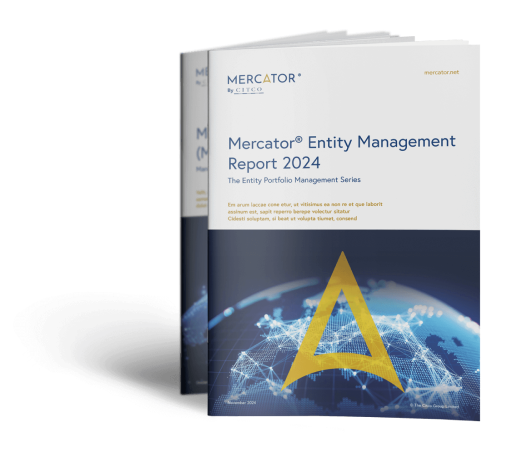The information contained in this document is marketing material and for informational purposes only. The information contained in this document is presented without any warranty or representation as to its accuracy or completeness and all implied representations or warranties of any kind are hereby disclaimed. Recipients of this document, whether clients or otherwise, should not act or refrain from acting on the basis of any information included in this document without seeking appropriate professional advice. The provision of the information contained in this document does not establish any express or implied duty or obligation between Citco and any recipient and neither Citco nor any of its shareholders, members, directors, principals or personnel shall be responsible or liable for results arising from the use or reliance of the information contained in this document including, without limitation, any loss (whether direct, indirect, in contract, tort or otherwise) arising from any decision made or action taken by any party in reliance upon the information contained in this document. © The Citco Group Limited, December 2024.
COVID-19 Spotlight
The COVID-19 pandemic has had an enormous impact on all of our lives in the last 12 months.
From the initial impact of lockdowns, where entire companies were forced to move online, to the current state of hybrid working, individuals have demonstrated impressive resilience in their adaptation to their ever-changing environments.
This adaptation is not just reserved for individuals, but whole industries as well. For the Entity Portfolio Management industry, the disruptions caused by the pandemic have largely been mitigated by a combination of effective remote working practices and supportive temporary regulation in many jurisdictions. This has ranged for delaying reporting deadlines to temporarily (or even permanently) enabling virtual Annual General Meetings (AGM).
While we expect many processes to more or less return to normal in future, some adaptations have proved successful enough for the industry to be considering permanent changes to the way things are done. As part of our wider research in the first annual ‘Mercator Entity Management (MEM) report’, we have detailed a number of highlights from this period of time, including some of these crucial innovations and the jurisdictions that effectively implemented them.
Late filing penalties/waivers & extensions
In all regions we have seen waivers and extensions available, or at the very least, acceptable delays by the local authorities with no late filing penalties. The most flexible region during the pandemic in the year of 2020 and the first half of 2021 was Europe, followed by LATAM, APAC, MEA and NA. However, it should be noted that NA was already a very flexible region prior to COVID-19, hence procedures could move forward without any further delays.
Filings with the local authorities
Based on the practice during the pandemic, more and more corporate actions can be easily completed using an online service. South America and Africa remain regions with the most common practice of filings in person (with the exceptions of Barbados, Bolivia, Costa Rica, Ecuador, Mexico, Uruguay, Algeria, Kenya, Mauritius, Morocco, Nigeria, Rwanda, South Africa, Uganda, Tanzania, Zambia). Whilst in Europe, Asia and North America we already have registries fully functioning through online portals. We have seen, as a result of the new terms dictated by the pandemic, a tendency for countries to adapt quickly to implement alternatives for the filings in person, which ultimately leads to more efficient process management.
e-meetings
The general practice has been that e-meetings are allowed only if company’s bylaws approve it. Argentina, Belgium, and The Netherlands are key examples of the innovative jurisdictions that introduced a new legislation which allows e-meetings regardless of what a company’s bylaws indicates. Where the local laws do not allow a virtual meeting option or technology does not support this approach, companies still have a decision via circulation of resolution in writing. However, it should be approved by companies Articles of Association of local law as well.
e-notarizations
Another novel and positive outcome from the pandemic is e-notarizations. Countries including Australia, Austria, Belgium, Botswana, some provinces in Canada, Denmark, Dominican Republic, Estonia, France, Guatemala, Honduras, Hungary, Indonesia, Latvia, Mexico, Netherlands, Norway, Papua New Guinea, Switzerland, Uganda, USA, Vietnam, and Zambia, adjusted their regulations and adapted to the new environment, allowing notaries to work remotely and arrange virtual identifications of signatories.
What’s next?
Looking back over the past 12 months, it is interesting to consider what further solutions might be implemented in order to ensure continuous business beyond the pandemic. Perhaps the possibility to easily access more local registries worldwide via online portals. Alternatively, it could also be a wider range of countries implementing e-notarization/e-legalization procedures. Regardless of what it will be, we can say that this challenging period has already revolutionised processes in corporate governance which are unlikely to be removed in future, owing to the vast time and cost saving solutions uncovered as a result of the impact from the pandemic.
Toma Razmaite
Knowledge Integration Manager, Mercator by Citco, Citco Mercator, UAB

